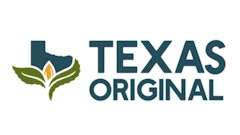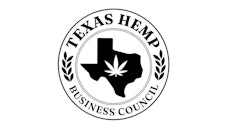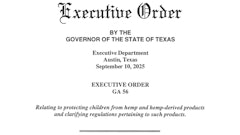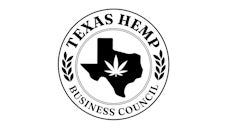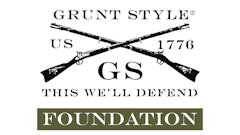
Texas police and the U.S. Drug Enforcement Administration (DEA) raided nine family-owned businesses Aug. 27 in Allen, a city of roughly 100,000 people just north of Dallas. Local authorities accused these vape and CBD shops of selling products containing noncompliant hemp derivatives.
David Sergi, a San Marcos-based hemp lawyer of Sergi & Associates who represents eight of the businesses, called the raids questionable and said the local businesses were operating legally under federal and state laws.
In a statement provided to CBT, Sergi said the Allen Police Department and the DEA “overstepped their authority” by destroying the businesses’ products, seizing point-of-sale systems and records, and confiscating personal computers belonging to store employees.
“The actions of Allen, Texas, Police Department, and the DEA are an escalation of the tactics used in other parts of the state to intimidate businesses selling legal hemp-based products,” Sergi said.
The raids come three months after Allen police sent a letter warning the city’s vape and CBD shops in May about selling products that don’t meet the legal definition of hemp, the Dallas Observer reported. The 2018 Farm Bill removed hemp from the list of controlled substances in the U.S. as long as it contains no more than 0.3% THC on a dry-weight basis.
“This letter shall serve as notice that the Allen Police Department has identified cannabidiol (CBD) and vape establishments, similar to yours, within the city of Allen [that] are selling illegal THC products, whether knowingly or unknowingly,” the letter stated. “As such, APD would like to advise you of such actions and possible consequences necessary due to violations of state law regarding the manufacture and delivery of a controlled substance.”
Specifically, the Allen Police Department said in a statement to The Dallas Morning News that products sold by the local businesses had tested from 7% to 78% THC.
The Allen Hemp Coalition, which hired Sergi to represent several of the businesses, successfully stayed subpoenas from the DEA in late July, according to court documents from the Texas Eastern District. The subpoenas sought financial records from the businesses, from customer transactions to supplier lists.
Sergi called the subpoenas “a blatant fishing expedition” and said the Allen businesses are in court “fighting for their right to operate legally as prescribed by federal and Texas law.”
One of the subpoenas, for example, requested a vape shop to turn over records identifying the owners and every employee of the business, including personal information. The subpoena also requested:
- a complete list of every source of inventory and a list of all purchases made during a 30-day period
- a copy of lab results for each THC product sold during a 30-day period
- a list of every distributor or transporter used by the business
- a list of every financial account used by the business, including bank names, credit/debit card numbers, and apps such as Venmo or Cash App and the numbers associated with those accounts
Although a federal judge halted the DEA’s subpoenas in late July, the federal agency supported the Allen Police Department and Collin County Sherriff’s Office in carrying out the nine search and seizure warrants on Aug. 27. The local authorities arrested five people, according to local media.
“We did multiple rounds of undercover operations, including sending minors in, and many of them were able to buy the THC underage,” Allen Police Chief Steve Dye told CBS News Texas. “And then we started testing those products and we found that the vast majority of those products were well over the 0.3 percent.”
Sergi maintained that his clients complied with state and federal laws.
“These local, family-owned businesses are operating legally,” Sergi said. “There is a right way and a wrong way under Texas law to deal with products that may be out of compliance. They have gone down the completely wrong path and will be held accountable.”
Sergi, whose law firm also represents Texas-based Hometown Hero, also helped stave off a multiyear effort by government officials to prohibit hemp-derived delta-8 THC products. The Texas Court of Appeals for the Third District at Austin ruled in September 2023 to uphold a decision for an injunction that stopped the Texas Department of State Health Services from classifying delta-8 and other THC isomers as Schedule I controlled substances.
The case ended up in the Texas Supreme Court, but delta-8 THC products remain legal in Texas today.
RELATED: Delta-8 THC Remains Legal in Texas Following Appellate Ruling
That case marked a significant win for cannabis and hemp businesses in Texas, where the state’s medical cannabis program is highly restrictive to the tune of a 1% THC cap by weight on tinctures, edibles and topicals. The state’s program bans flower, as medical patients are prohibited from smoking or vaporizing cannabis products.
Still, Whitney Economics (WE) estimated that Texas cannabusinesses, including hemp operators, generated more than $8 billion in revenue and employed more than 50,000 workers in 2022. Roughly $3.3 billion came from CBD and converted cannabinoid retail sales, according to the WE report from July 2023.
The U.S. hemp-derived cannabinoid market is “conservatively” estimated to be $28.4 billion, according to WE.












